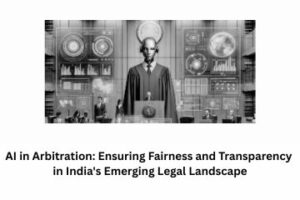The Doctrine of Constructive Notice
Introduction
Every person who enters into any contract with a company will be presumed to know the contents of the memo of ass and the articles of ass. This is known as the doctrine of constructive notice.
The memorandum and the articles of association of every company are registered with the Registrar of Companies. The office of the Registrar is a public office. Hence, the memo and the articles of ass become public documents. It is therefore the duty of a person dealing with a company to inspect its public documents and make sure that his contract is in conformity with its provisions.
As observed by Lord Hatherley, “…whether a person actually reads them or not, he is to be in the same position as if he had read them”. Every person will be presumed to know the contents of the documents.
The practical effects of this rule can be observed in Kotla Venkataswamy v. Ramamurthy– The articles of a company provided that its deeds etc should be signed by the managing director, the secretary, and a working director on behalf of the co. the plaintiff accepted a deed of mortgage executed by the secretary and a working director only. The plaintiff could not claim his deed. It was held that “notwithstanding, therefore, she may have acted in good faith and the money may have been applied for the purposes of the company, the bond is nevertheless invalid.”
Another effect of this rule is that a person dealing with the company is taken not only to have read the documents but also to have understood them according to their proper meaning. Further, there is a constructive notice not merely of the memo and art, but also of all the documents, such as special resolutions and particulars of charges which are required by the Act to be registered with the Registrar. But there is no notice of documents that are filed only for the sake of records, such as returns and accounts.
Statutory reform of constructive notice
The ‘doctrine of constructive notice’ is more or less an unreal doctrine. It does not take notice of the realities of business life. People know a company through its officers and not through its documents. Section 9 of the European Communities Act, 1972 has abrogated this doctrine. These provisions are now incorporated in sec 35 of the (English) Companies Act, 1985.
Position in India
The courts in India do not seem to have taken the doctrine seriously. For example, the Calcutta High Court in Charnock Collieries Co Ltd. v. Bholanath, enforced security that was not signed in accordance with the company’s articles.
Also, in Dehra Dun Mussorie Electric Tramway Co. v. Jagmandardas, the Allahabad High Court allowed an overdraft incurred by the managing agent of a company when under the articles the directors had no power to delegate their borrowing power.
Conclusion
Thus, the doctrine of constructive notice seeks to protect the company against the outsider by deeming that such an outsider had the notice of the public documents of the company. However, in India, the courts with a view to protecting the innocent third parties acting in good faith have not relied upon the doctrine seriously.




